Zen 5 sales have ?? ?? ???not gone well at all. AMD is struggling to sell Ryzen 9000 CPUs, and this is having a flow-on effect across the rest of the CPU market. Now that we're about a month on from the launch of Zen 5, it's time to take a look at what impact it's had, the trends we're seeing in CPU pricing, and the sorts of CPU deals you can expect.
No one is buying Zen 5
By now, you're probably familiar with how desktop Zen 5 has been received in terms of its performance. These processors just aren't that impressive for workloads you'd generally expect to run on a consumer platform.
Having spoken to several retailers since the launch of Ryzen 9000, this has had a disastrous effect on sales. In Australia where I reside, this has been the worst Ryzen launch since the very start of Ryzen, with unit sales so slow that it's hard to believe the numbers we were told.
One retailer told us a Zen 5 sales figure shortly after launch that was in the single digits, and another told us sales were a tiny fraction of what they saw with Zen 4 at launch. These are retailers that typically see thousands of CPU sales around launch, even for fairly underwhelming product lines. The reaction to Zen 5 locally has been consumers looking elsewhere for their processor needs, usually to Zen 4 or older generations.
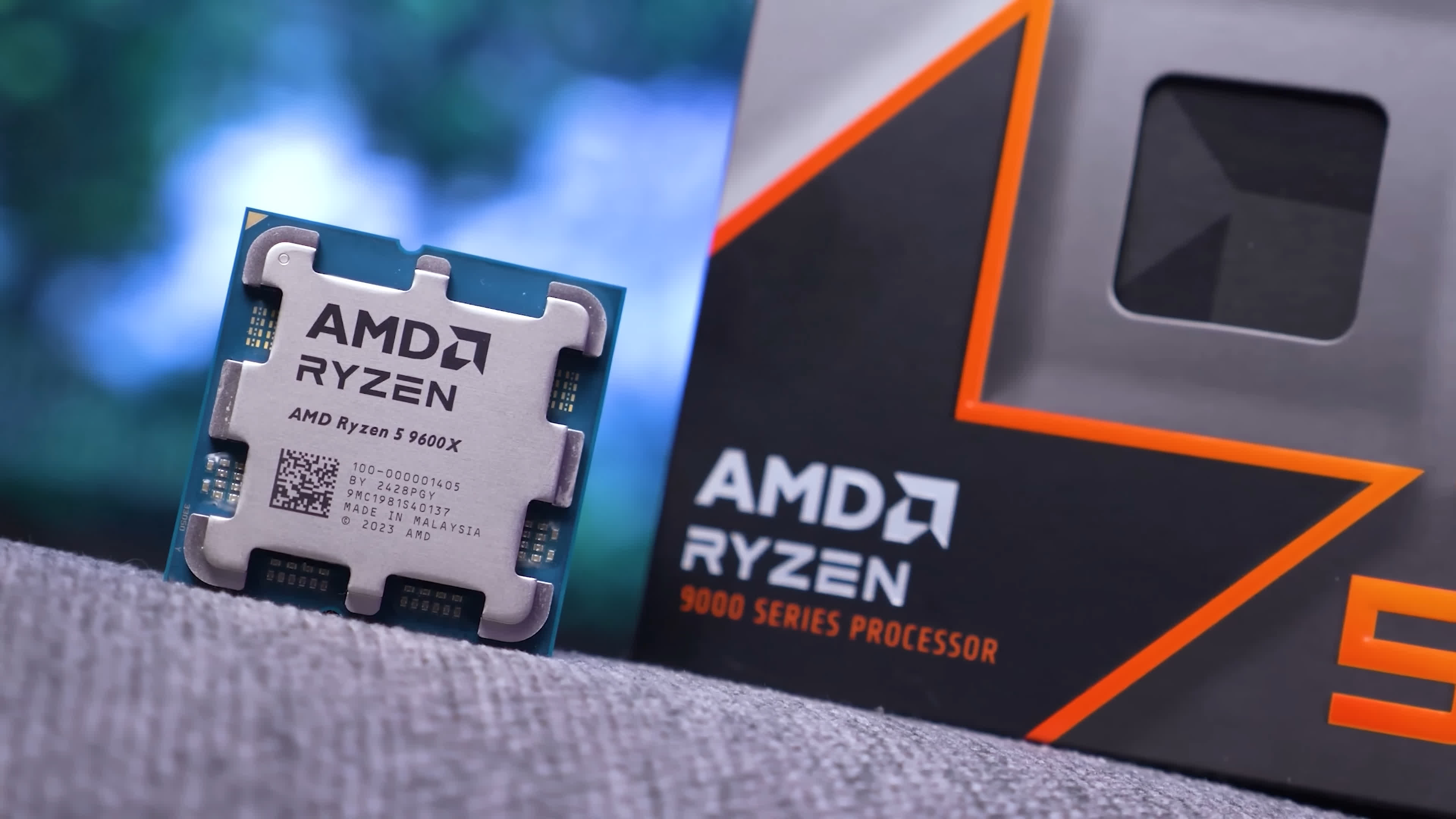
We're seeing similar sales figures from retailers in other regions, like Mindfactory (Germany). Their public data shows the Ryzen 7 9700X has sold around 160 units since launch a month ago, with similar figures for the Ryzen 9 9950X. The 9600X has seen about 60 units sold, and the 9900X about 80 units. These are similar numbers to the Ryzen 5 7600X3D, a product with little fanfare that has sold about 40 units just days after launch.
Back at the launch of Zen 4 (Ryzen 7000 series), Mindfactory sales data after a week of availability showed cumulative sales of 850 units. With Zen 5, we're looking at half the total unit sales across the same number of available CPUs, but this time after a whole month of availability, not just a single week.
In both scenarios, this is not factoring in the sales of X3D processors, which are generally more popular. So, this puts into perspective how underwhelming Ryzen 9000 sales have been and how slow they have been to move relative to previous generations. Half the sales in a 4x the time is not good.
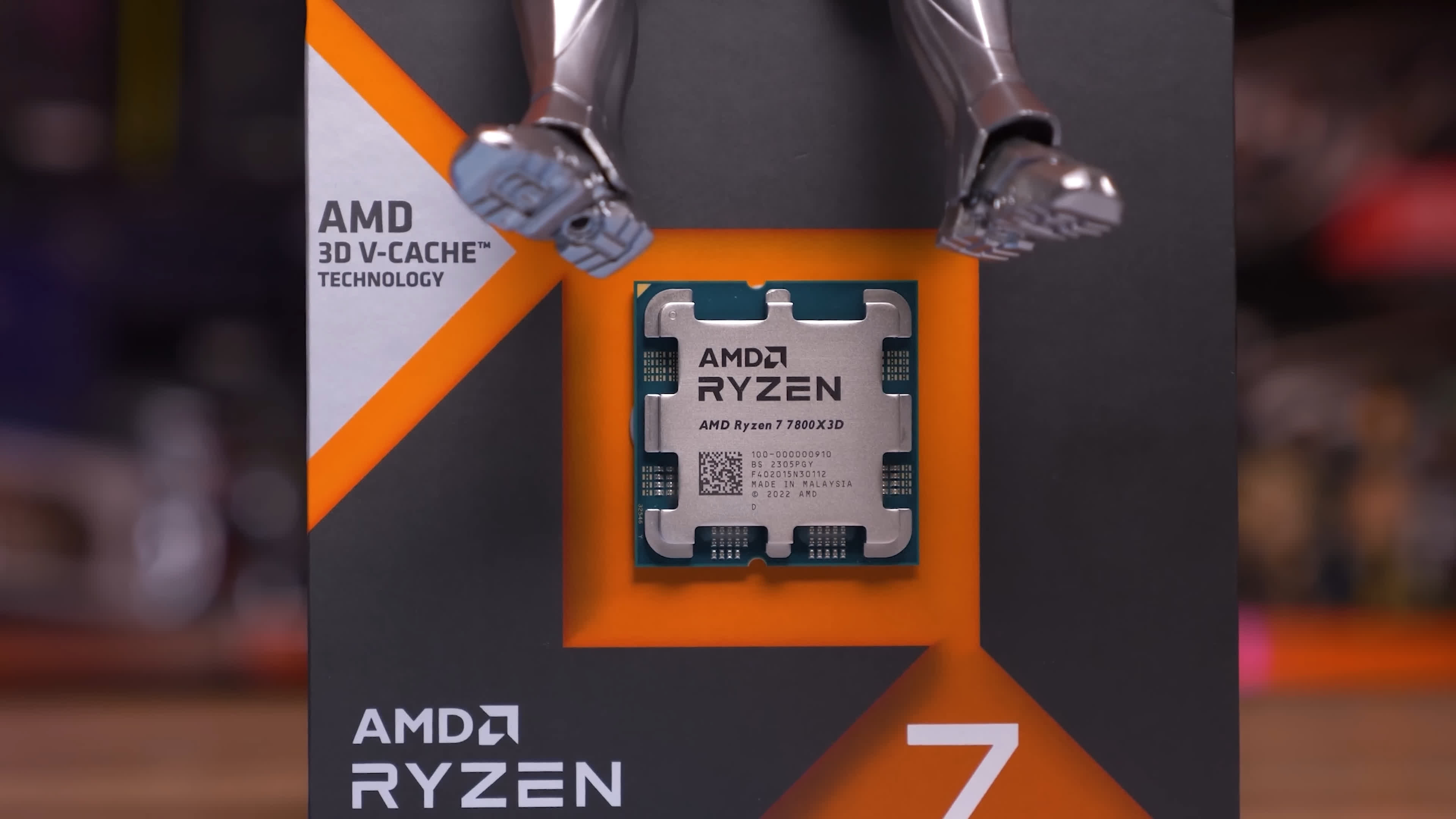
And what's a bit funny about this situation is that two years ago, we made a video about Zen 4 Ryzen 7000 sales a couple of weeks after launch, saying that sales were not good and that no one was buying those processors.
In hindsight, those sales now look good for a new AM5 generation, especially factoring in the high motherboard and memory prices at launch, as well as needing to convince people to do a full platform upgrade.
With better platform costs and more people already on AM5 that might have considered an upgrade, there aren't as many barriers to entry, making the context around Zen 5 sales even worse comparatively. There is no doubting that Zen 5 has hugely underwhelmed.

Another dire situation for Zen 5 is seen in the Amazon best-selling CPUs list.
Zen 5 is hard to find in this list. The most popular product right now is the Ryzen 9 9950X sitting in the 32nd spot. The 9700X is in 37th place, the 9900X in 54th place, and the 9600X is in the 87th spot. Two of these models are less popular than the seven-year-old Core i7-7700K.
Meanwhile, we have the base Zen 4 lineup sitting in the 2nd, 4th, 13th, and 14th spots, with the X3D parts rounding out the top four. Amazon tells us that Intel 13th and 14th generation processors are more popular than Zen 5, despite their well-known stability issues, with parts like the 14900KF and 13900K sitting higher in the list than the most popular Zen 5 processor.
Impact on Zen 4 CPU pricing
Zen 5 being a flop has had a noticeable impact on CPU pricing for other models. One of the unfortunate side effects has been the Ryzen 7 7800X3D not only getting more expensive but also becoming more difficult to find. Demand for this CPU sharply increased after Zen 5 performance numbers came in, and some retailers have struggled to keep it in stock.
In the first half of 2024, especially after the middle of February, in most instances you were able to buy a 7800X3D for between $350 and $370, and in May and June, there were consistent sales pushing it down to $340. Since July, the 7800X3D has jumped back up to $400 at retailers like Newegg, with the lowest price being around $370. There's a similar price trend at Amazon, looking at first-party pricing.
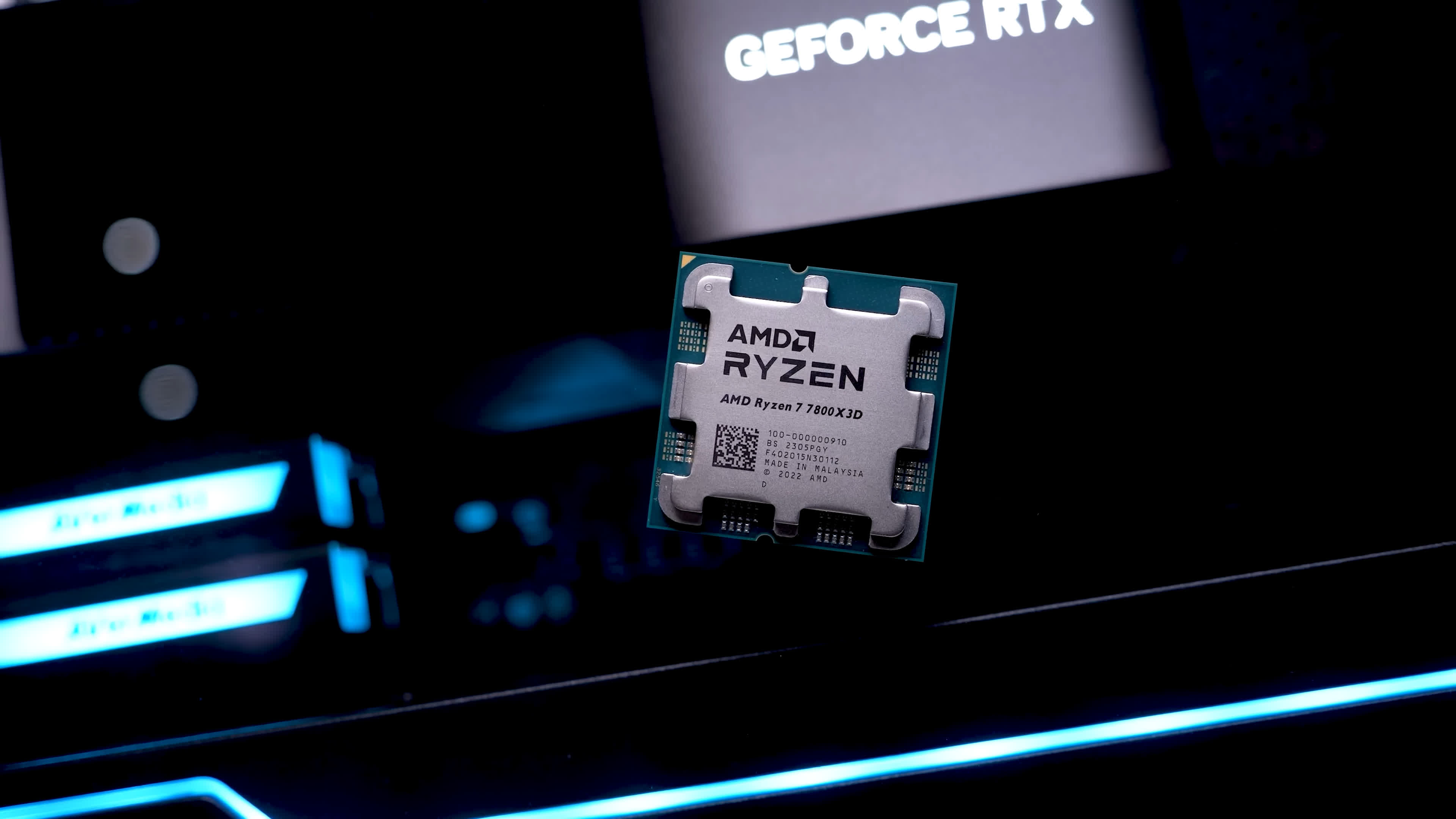
This price increase seems to be largely isolated to the 7800X3D. The 7950X3D, for example, is $550, a typical price that we've seen across 2024 outside of a few small sales windows that pushed it to $500.
The good news is that pricing for non-X3D Zen 4 processors has actually improved for the most part since the launch of Zen 5. The cheapest mainstream and widely available model, the Ryzen 5 7600, has dropped from $190 to $200 in the lead-up, to just $180 today. The Ryzen 7 7700X price has stayed largely flat with a small trend downwards, though we are beginning to see flash sales at some retailers that briefly drop it to $220 or below, a great deal if you can grab one at that price.
Ryzen 7 7700X pricing trend over the last year
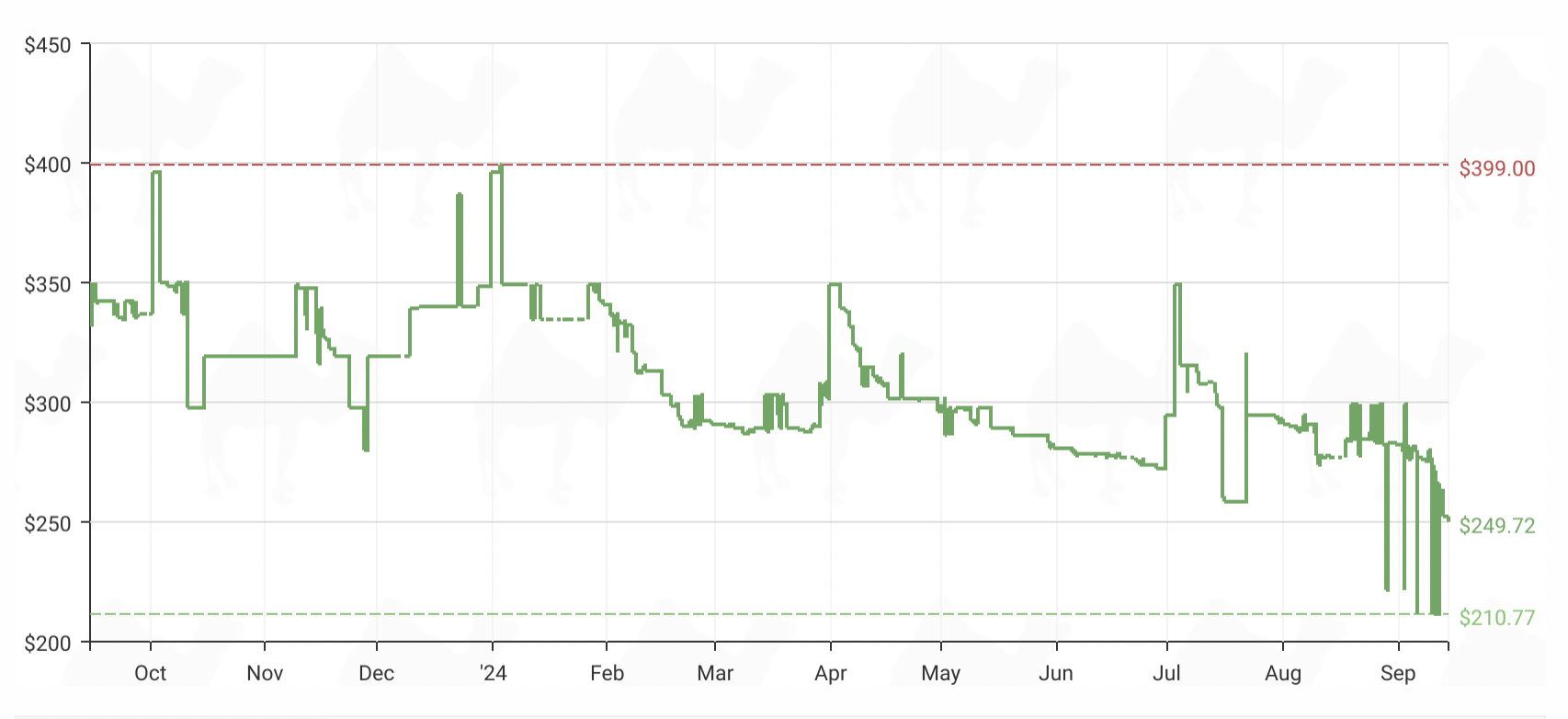
Higher core count models have also seen steady decreases. The Ryzen 9 7900X was typically a $380 CPU three to six months ago. More recently, it's fallen to $340, and hopefully, that price will be sustained.
The 7950X trend is interesting, priced at $490 in the months leading up to Zen 5, rising at the start of July before creeping down again over time to now sit at $500.
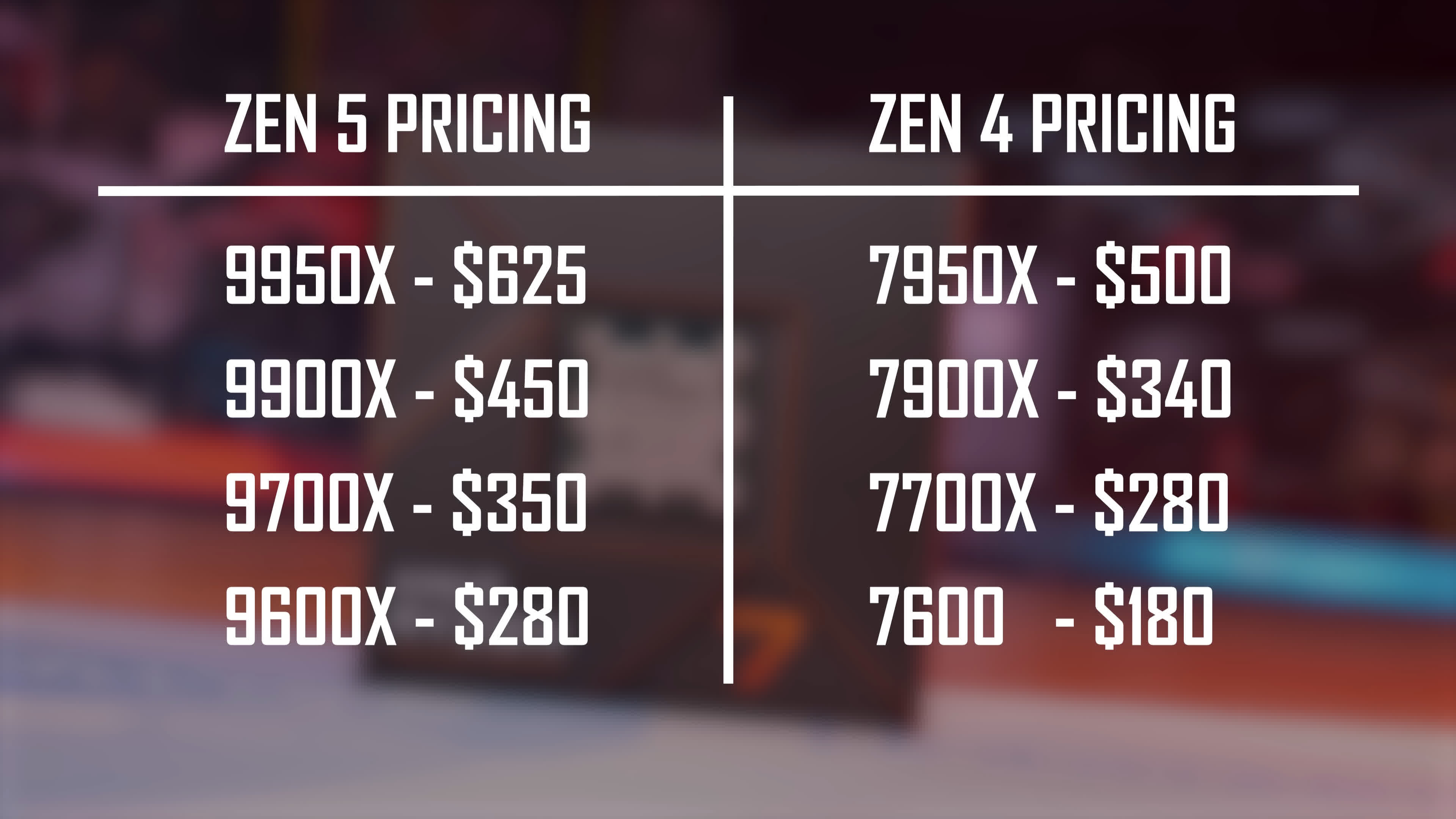
What we're yet to see is AMD being super aggressive one way or another to move CPUs. There is no indication that AMD is trying to clear out Zen 4 stock to make room for a Zen 5-only lineup at inflated prices; there's only been the occasional flash sale and no concerns around availability aside from the popular 7800X3D. The evidence suggests AMD is comfortable selling Zen 4 alongside Zen 5, even if that cannibalizes Zen 5 sales.
We're also not seeing any significant price corrections to Zen 5 yet, which makes sense – we're only a month after launch, which is usually too soon for major price drops.
In our opinion, Zen 5 needs substantial price changes to make it more competitive, and knowing how AMD likes to adjust pricing as the product ages, it's only a matter of time before Ryzen 9000 parts get cheaper. But right now, the 9600X and 9950X are at their MSRP, the 9700X is about $20 below, and the 9950X about $25 below. Yeah, some parts are a little cheaper, but nothing that would make a buyer genuinely consider Zen 5 over Zen 4.
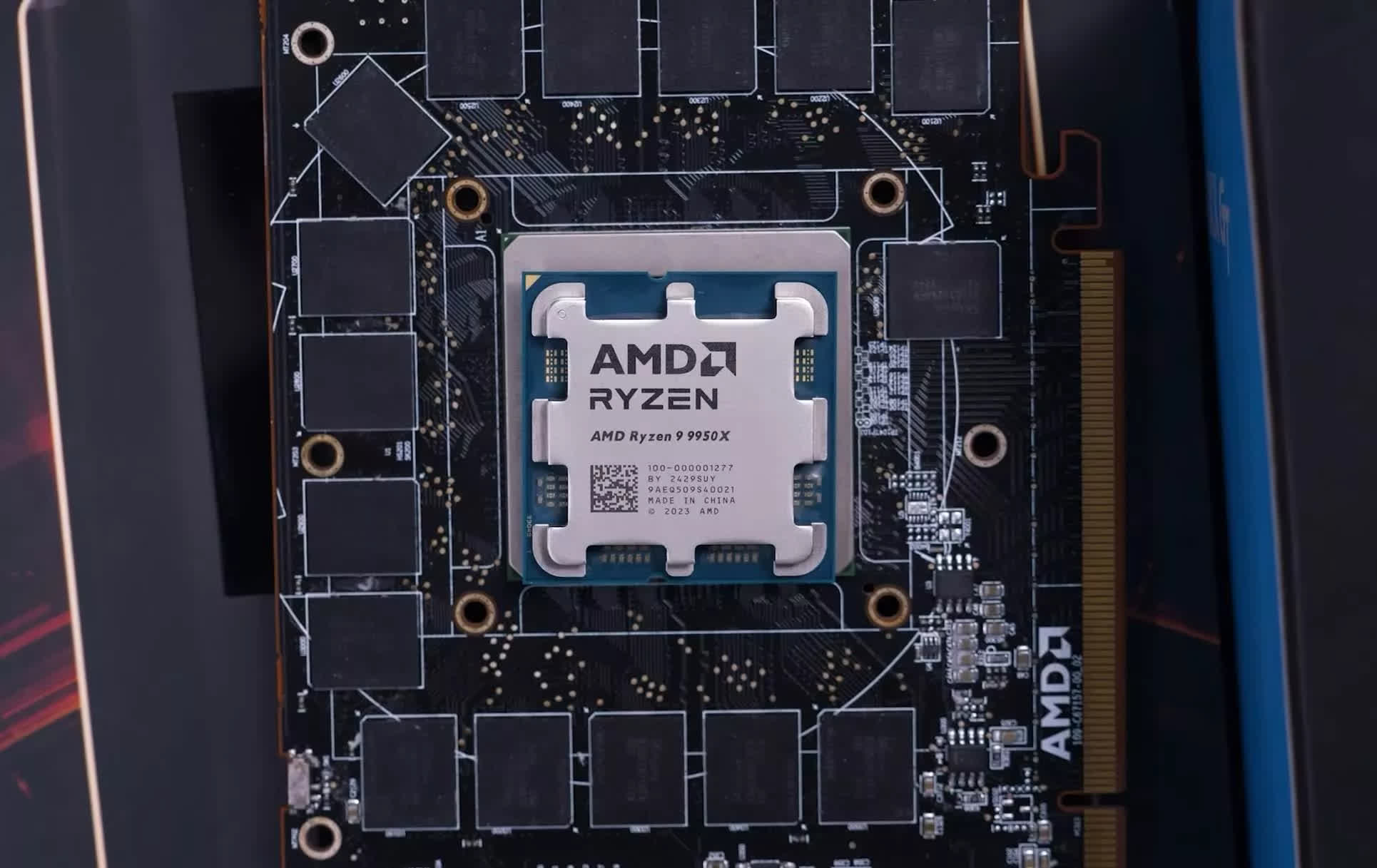
And that's the main problem the Ryzen 9000 lineup faces and will continue to face for months. Zen 4 models are simply much more attractive, given how similar in performance the latest CPUs are.
For example, the 7950X has been available for no more than $550 for most of the last six months, and at $500 right now, it just doesn't make sense to spend 25% more on the 9950X. The 7900X is currently over $100 cheaper than the 9900X and has been $400 or less since the start of the year, lower than the 9900X's $450 MSRP.
Eight-core models like the 7700X have been about $280 to $300 for months now, so the 20% premium to get the Zen 5 version is impossible to justify. And there's just no way you'd consider paying $280 for a Ryzen 5 9600X when the Ryzen 7 7600 is $180 and has regularly been available for $200 or less since the start of the year.
Until Zen 5 and Zen 4 reach price parity or thereabouts, maybe with a small premium for Zen 5, we just don't see how these CPUs sell in significant numbers. It's all well and good that Zen 5 has a powerful architecture for server workloads and includes excellent AVX-512 performance, but general consumer workloads don't take advantage of the architectural advancements right now.
The majority of desktop and DIY sales go to either gamers or people doing everyday consumer tasks, and Zen 5 just doesn't offer enough for those customers to justify any sort of price premium.
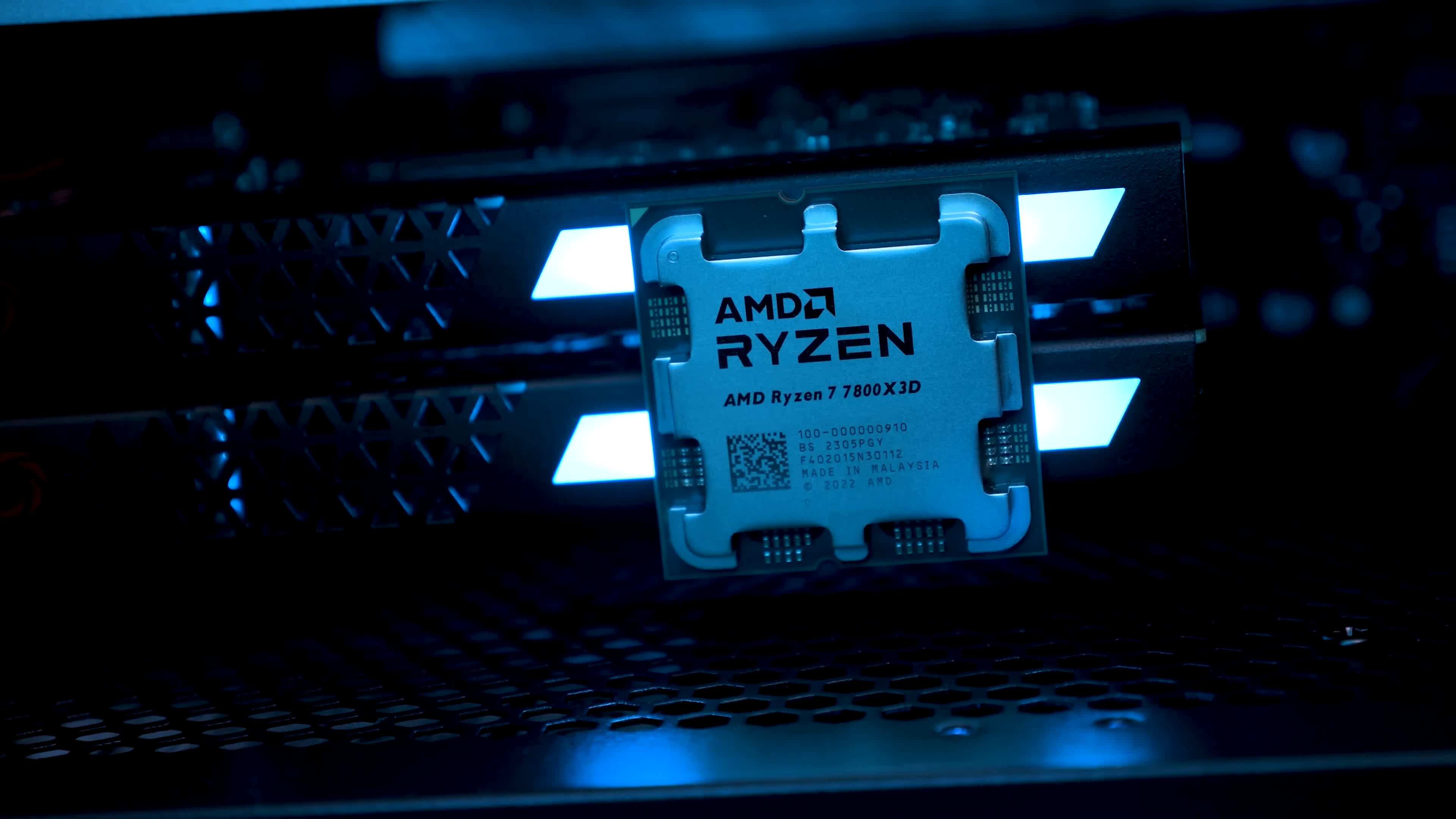
This is further compounded by the 7800X3D offering the best gaming performance, and it was always pretty unlikely that baseline Zen 5 CPUs would match or outperform Zen 4 X3D (despite what AMD claimed).
AMD's strategy to deal with Zen 5's positioning against their own parts like the 7800X3D is a bit unusual. We know that gamers buy a lot of Ryzen processors, but there's no compelling Zen 5 part for gamers. They don't offer performance leadership, and they also don't offer value or an improvement relative to existing parts. Zen 5 simply had to offer one or the other and slot in as a part that's perfect for those who didn't want to spend $350 on the fastest gaming CPU in the 7800X3D.
If you didn't want to go all out on an X3D part, the next best choice in the AM5 lineup is the sub-$200 Ryzen 5 7600. Debuting the six- and eight-core models designed for mainstream consumers at prices that are unattractive compared to the 7800X3D and 7600 is not a winning strategy.
We guess AMD is happy to sell you any of their Ryzen processors and doesn't really care whether it's Zen 4 or Zen 5, but we would have thought if you're going to spend the resources and effort to fabricate a new CPU generation, you'd probably want to ensure it makes sense in at least some parts of the market – otherwise, why bother? Just keep discounting your existing parts over time and call it a day until a worthwhile improvement comes along.
Are Intel CPU stability issues affecting sales?
The other interesting thing to look at in the market right now is the price of Intel processors. You'd think that with significant negative attention around stability issues with 13th- and 14th-gen parts, prices would quickly start to fall as consumers stop buying them. But that really hasn't happened.
The 14900K has dropped just $20 from its long-term stable price of $550 seen for most of the year to $530 today. The 13900K is still around $450. The 14700K is, we guess, slightly cheaper than it was, but not to any substantial degree. The 13700K is basically flat. Maybe you'll get a $20 cheaper 14700KF.
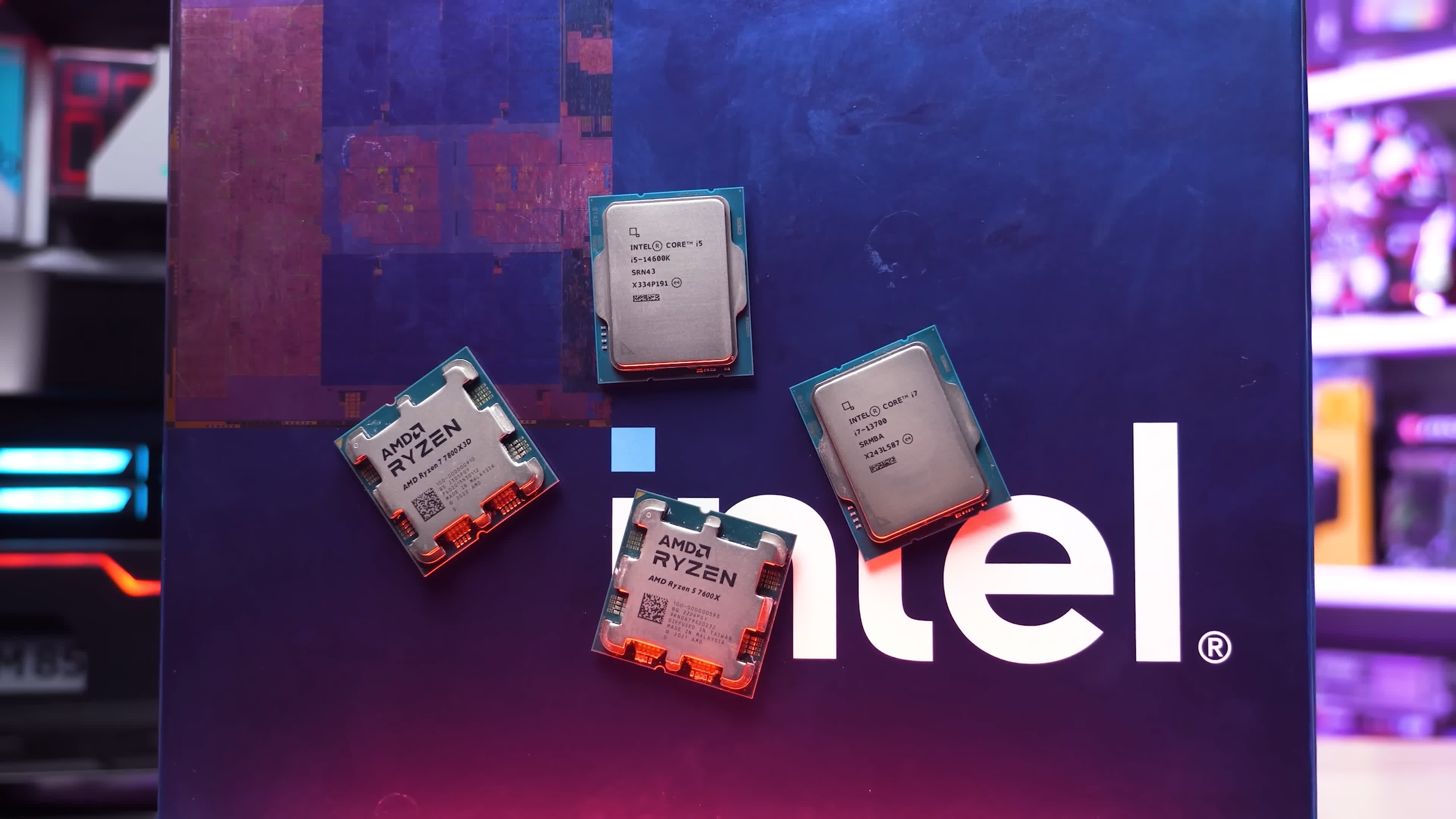
Retailers in Australia have told us that sales for Intel processors dropped off a cliff when the news stories around stability issues really started to heat up several months ago. But that, combined with poor sales rankings at places like Amazon, really hasn't translated into benefits for the brave customers that would actually consider buying an Intel 13th or 14th-gen CPU right now. Intel has admitted there are problems they are working through but are still selling their products for as close to full price as they possibly can.
So with sales dropping away, why haven't these parts gotten cheaper? Why are retailers comfortable letting them sit on shelves at unattractive prices? Well, the way it usually works is that the products you see listed at retailers – that inventory is already purchased. If Newegg bought a bunch of Core i7-14700Ks when the suggested retail price is $370, there's very little margin or room for them to adjust that price without support or rebates from the manufacturer.
If sales suddenly come to a halt, they're stuck with the units they've already bought, with the choice to either wait and hope sales pick up, take a loss on the part and sell it at a discount, or wait and hope the manufacturer provides some rebates or incentives to move stock. At the moment, Intel isn't doing much to incentivize sales or help shift stock, though this could change as the launch of next-gen Arrow Lake parts approaches.
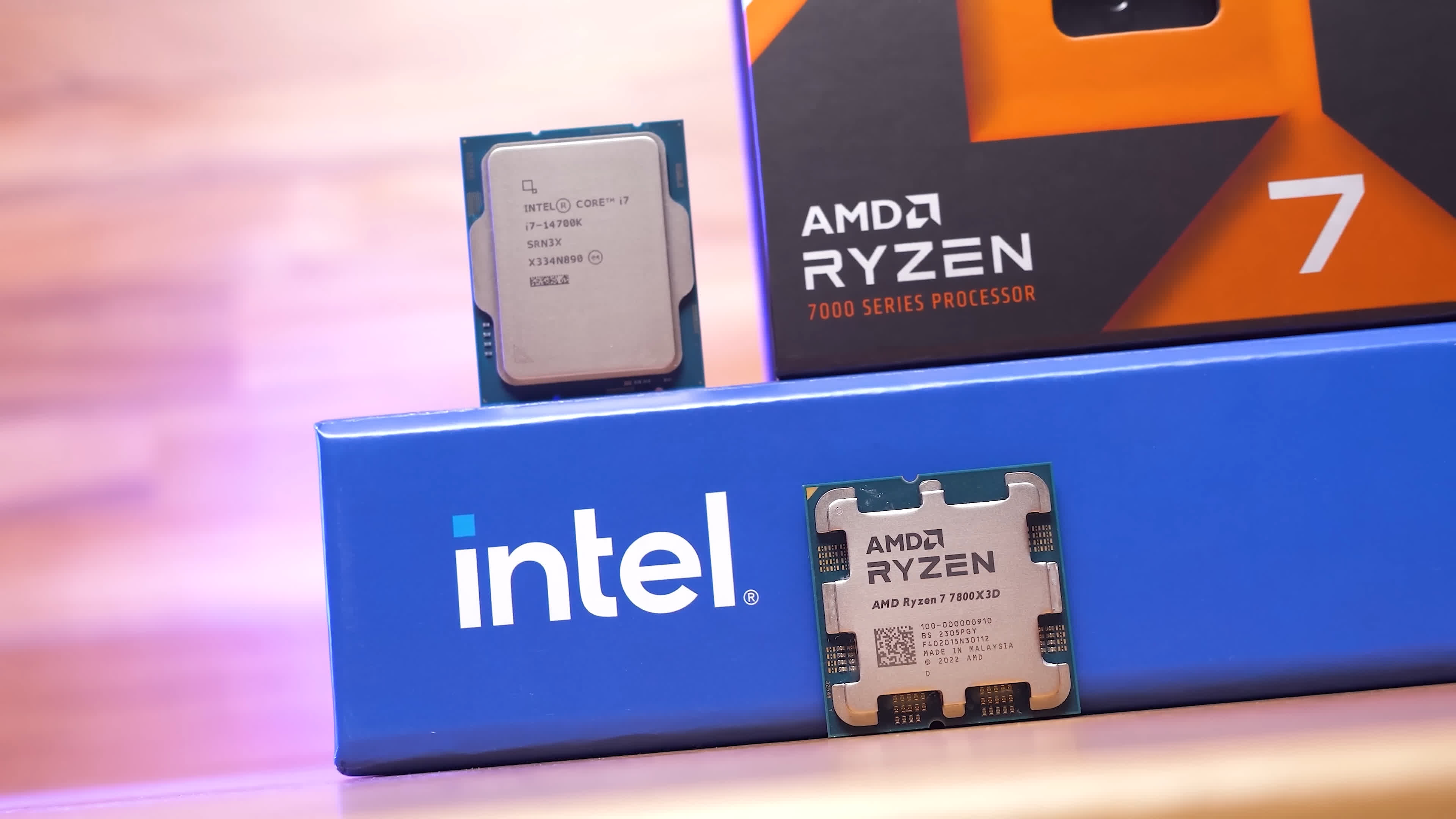
It's also easier to adjust pricing over time when unit sales are higher. Retailers are constantly ordering Ryzen CPUs, especially in the Zen 4 and Zen 3 generations, because they are in demand. With more orders, there's more opportunity for price corrections, less stock stuck on shelves, more up-to-date prices.
AMD is also well-known for providing rebates to retailers across CPUs and GPUs whenever they decide to shake up prices to make their products more competitive, whereas Intel and Nvidia are typically keener to keep pricing consistent and implement only the occasional price drop.
What We Learned
Despite Zen 5 being a flop and many Intel CPUs being hard to recommend, the desktop CPU market isn't bad right now. Zen 4 processors are decent value for those wanting to upgrade to AM5, with plenty of options whether you want to focus on performance or bang for your buck, even with the 7800X3D being a bit more expensive than it once was. AM4 is still kicking along as well for those with existing motherboards.
However, at this stage in the year, there are some situations where it probably makes sense to wait rather than jump straight into a new CPU purchase or platform upgrade.
If you aren't on AM5 yet and are interested in the upgrade, it makes sense at this point to wait and see what Intel brings with Arrow Lake. We're expecting Intel to launch their next generation in October, which is right around the corner, and who knows, it might be highly competitive with AM5 CPUs and either be the go-to option or force more price adjustments from AMD.
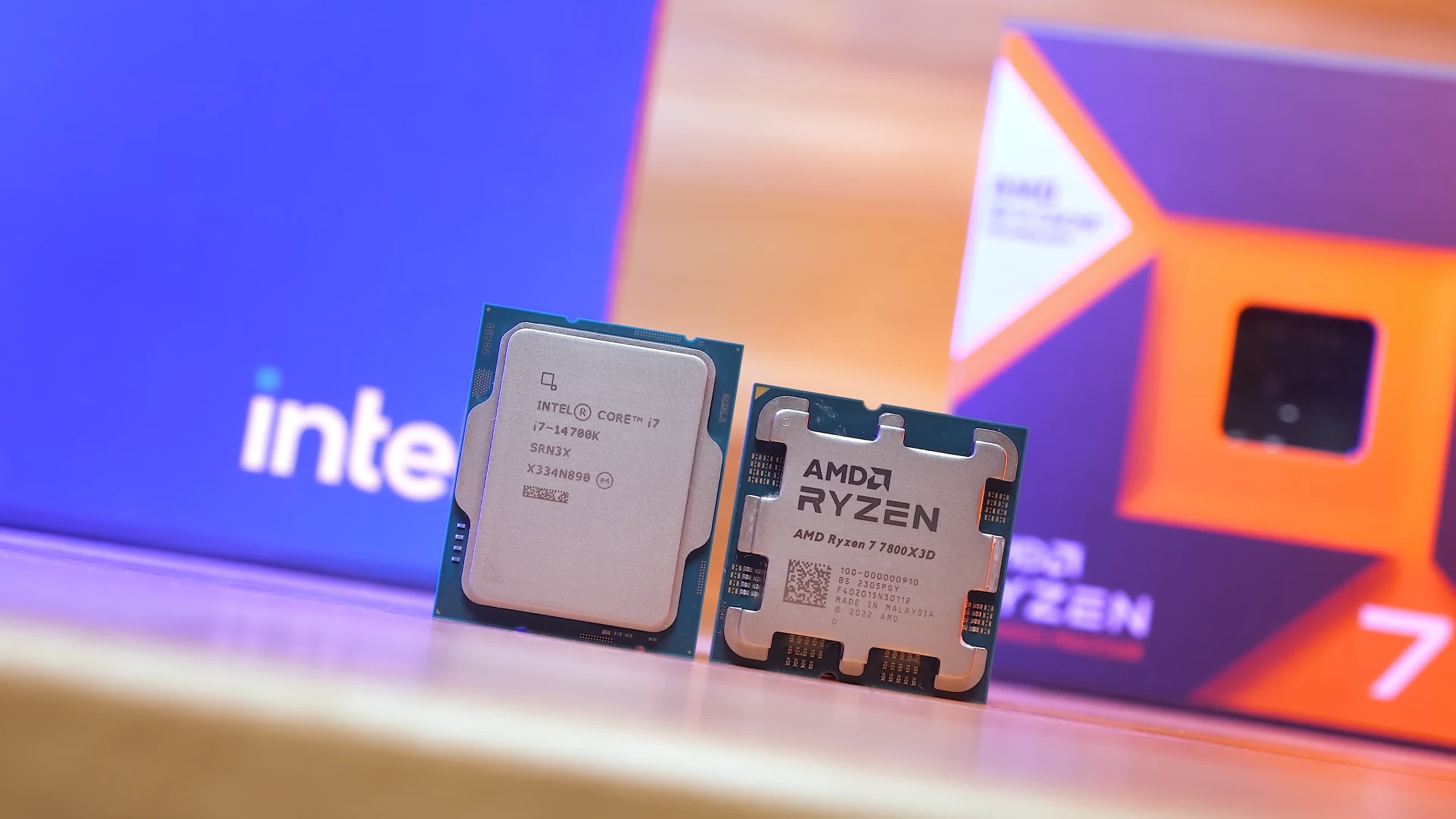
When new parts are just about to launch, it always makes sense to get all the information in hand before deciding which path to take.
We think if you're interested in a Ryzen 7 7800X3D in particular, it makes sense to wait. Not only is Arrow Lake just about to launch and could be competitive for gaming, but the 7800X3D isn't at its lowest price and will likely come down again, especially around the holiday sales period.
AMD is also going to launch Zen 5 X3D parts at some point, and yeah, maybe a 9800X3D isn't as exciting as it once was, but that too might change the conversation around the fastest gaming processor and what parts are the best value. Whether or not Zen 5 X3D comes this year or early next year, we're not sure, but we're talking about a few months either way.
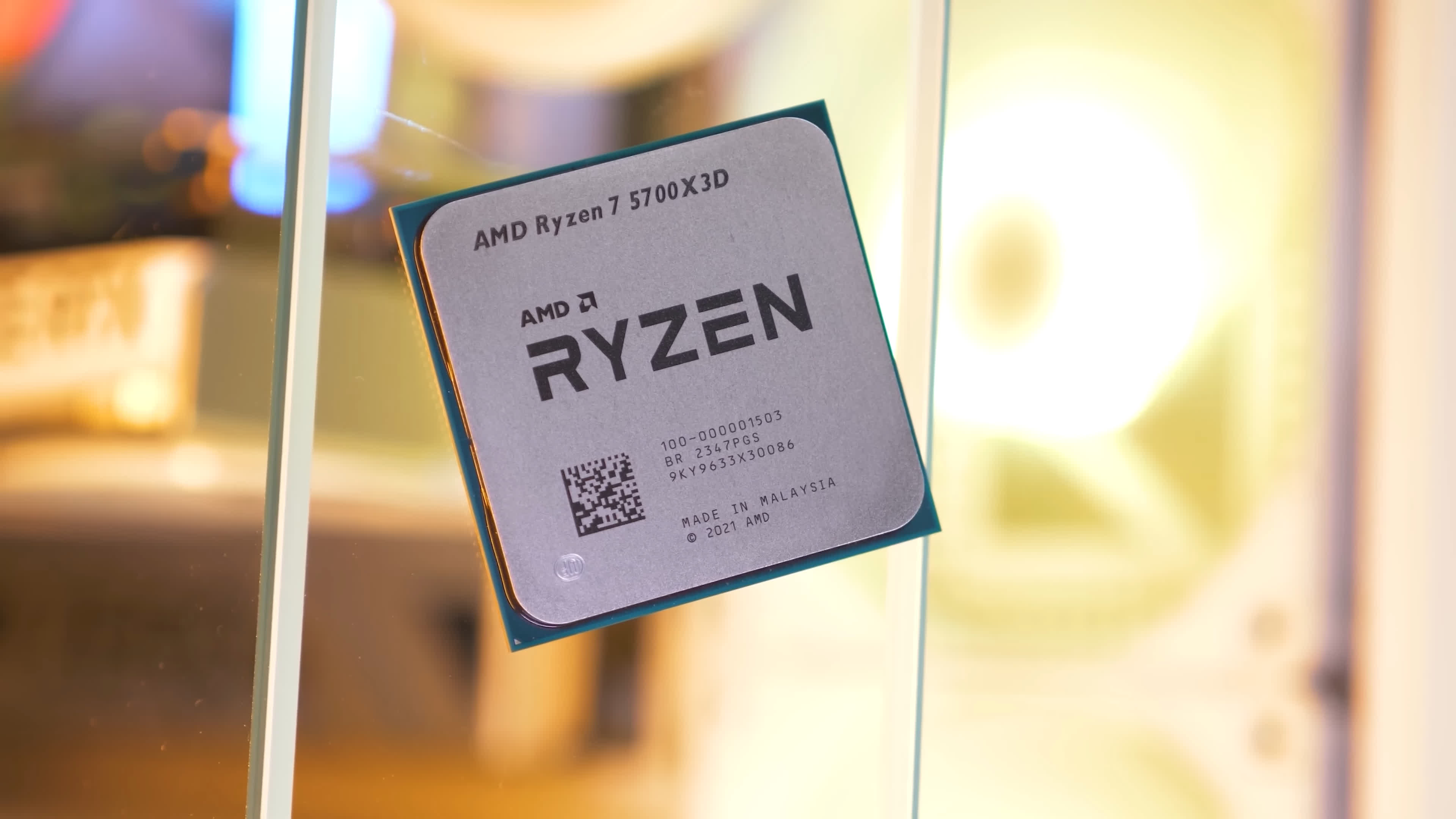
Where it probably still makes sense to consider an upgrade is if you're on the AM4 platform and won't be entertaining a platform upgrade. The 9800X3D and Arrow Lake parts probably won't change things too much if you're eyeing a drop-in AM4 upgrade to something like the Ryzen 7 5700X3D or 5800X3D.
Pricing for most Ryzen 5000 parts has been consistent throughout this year; you might see some sales around the holiday period, but personally, we think the 5700X3D at around $195 is a great deal.
Shopping Shortcuts:
- AMD Ryzen 7 7700X on Amazon
- AMD Ryzen 7 7800X3D on Amazon
- AMD Ryzen 7 9700X on Amazon
- AMD Ryzen 9 9950X on Amazon
- AMD Ryzen 9 7950X3D on Amazon
- AMD Ryzen 5 9600X on Amazon
- AMD Ryzen 5 7600X on Amazon